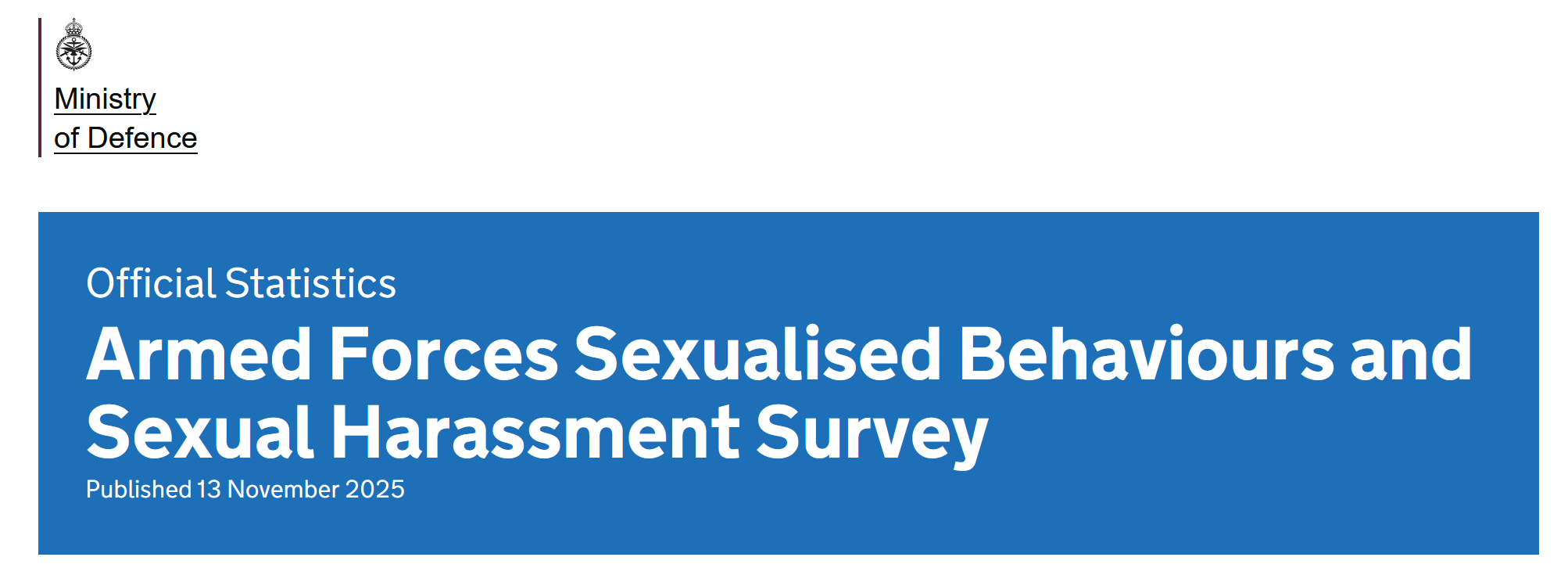If This Happens in the Military, It’s Happening in Your Workplace Too
A new Ministry of Defence survey has revealed widespread sexualised behaviour across the Armed Forces; and the cultural patterns uncovered are far from military-specific. Two-thirds of female personnel (67%) reported experiencing at least one sexualised behaviour in the past year, nearly double the rate for men. The findings reflect issues many civilian organisations still struggle with: normalised misconduct, low reporting confidence and real consequences for retention.
Why It Matters
The survey shows how easily inappropriate behaviour becomes embedded in workplace culture. Most incidents happened at work. 76% took place in the workplace or training environment, signalling that culture, supervision and team dynamics matter more than geography.
For HR leaders, the parallels are clear: when everyday sexual comments, looks or gestures are brushed off as “banter”, they create conditions where more serious behaviours can take root. And when people believe nothing will change, silence becomes the norm.
What This Means for Workplace Safeguarding
Culture first: Nearly one in three women (29%) said the behaviour made them consider leaving. This isn’t about isolated incidents it’s about long-term cultural risk and the operational impact of losing talent.
Reporting confidence: Women were far more hesitant to speak up. Among those who didn’t report their experience, 26% believed nothing would be done and 25% feared being seen as “causing trouble”. These fears mirror what many civilian HR teams hear privately but rarely see reflected in formal reports.
Leadership accountability: Because the majority of incidents occurred inside workplace settings, responsibility sits squarely with leaders, supervisors and local culture, not with policies on paper.
imabi’s View
“These findings show how quickly culture becomes a risk when people don’t feel safe speaking up. Prevention only works when reporting feels trusted, accessible and acted upon. Employers, be they military or civilian, need systems that give people confidence their voice matters.”
— Mark Balaam, Founder & CEO, imabi
imabi Pro provides confidential reporting, guidance, wellbeing tools and data-driven insights that help employers identify issues early, demonstrate “reasonable steps” under the Worker Protection Act, and build cultures where people feel believed, supported and safe.

